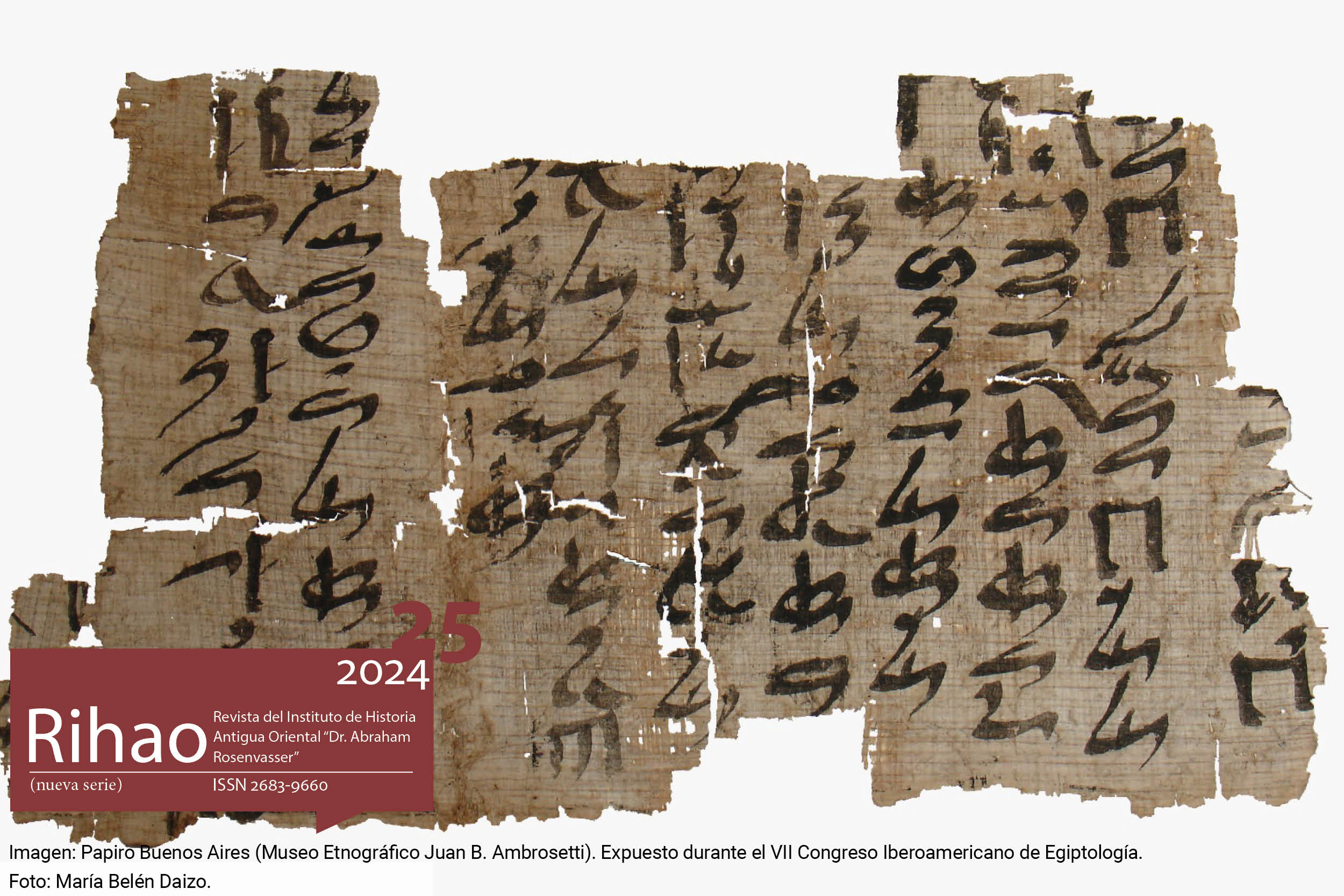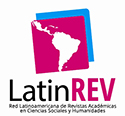The myth of primordial rebellion
Abstract
There is a recurring theme within the mythology of archaic civilisations that we could call ‘The primordial rebellion’. In Ancient Egypt, from the New Kingdom onwards, it is possible to find mythical accounts that develop the plot. We define this rebellion as ‘primordial’ because, accord-ing to the stories, in an earlier era, in all likelihood the first, there were rebels who challenged the rule of the creator and his successors. This threatened kingship could be the projection onto the mythical plane of a different kind of leadership than that which characterises state societies. However, the king of the beginning, once a benevolent creator, allows a violent and repressive power, characteristic of the state, to emerge. As an accompanying effect, the realm of the gods is split from that of men. The question then arises as to what generates such a disruption and why, after the rebellion is over, it is not possible to return to the pristine world. Here we will concentrate on reflecting on Egyptian responses to these questions by analysing three accounts from the New Kingdom and later periods that deal with the rebellion and the irrevocable dis-ruption of the primordial order.Downloads
References
Assmann, J. (2001). The Search for God in Ancient Egypt. Traducción de David Lorton. Ithaca: Cornell University Press.
Assmann, J. (2005 [1996]). Egipto: Historia de un sentido. Traducción de Joaquín Chamarro, editado por Antonio Pérez Largacha. Madrid: Abada.
Baines, J. (2006 [1996]). Mito y literatura, en: Aspectos de los Estados antiguos: mitos, ritos, dinámicas políticas. Buenos Aires: OPFyL, 9-28.
Blackman, A. M., y Fairman, H. W. (1942). The Myth of Horus at Edfu. II, en: Journal of Egyptian Archeology 28: 32-38.
Brunner-Traut, E. (2005 [1963]). Cuentos del Antiguo Egipto. Madrid: Edaf.
Cabobianco, M. (2010). La rebelión primigenia en los relatos míticos egipcios del Reino Nuevo y períodos posteriores. Tesis de licenciatura. Buenos Aires: Universidad de Buenos Aires. En línea: http://repositorio.filo.uba.ar/handle/filodigital/1185. [Consultado: 20-10-2024].
Cabobianco, M. (2011). El Antiguo Egipto y los rebeldes sin causa. Contra el Estado en el plano del mito, en: Campagno, M. (ed.), Pierre Clastres y las sociedades antiguas. Buenos Aires: Miño y Dávila, 181-197.
Cabobianco, M. (2013). El tiempo y el espacio de la violencia en los relatos míticos del Antiguo Egipto, en: XIV Jornadas Interescuelas/Departamentos de Historia. Mendoza: Departamento de Historia de la Facultad de Filosofía y Letras. Universidad Nacional de Cuyo.
Cabobianco, M. (2016). La rebelión primigenia en Egipto y Suazilandia, en: Campagno, M., Gallego, J. y García Mac Gaw, C. G. (eds.), Regímenes políticos en el Mediterráneo antiguo. Buenos Aires: Miño y Dávila, 45-56.
Campagno, M. (2004). Una lectura de La contienda entre Horus y Seth. Buenos Aires: Del Signo.
Cervelló Autuori, J. (1996). Egipto y Africa: Origen de la civilización y la monarquía faraónicas en su contexto africano. Sabadell: Ausa.
Deleuze, G. y Guattari, F. (1994). Mil Mesetas: Capitalismo y esquizofrenia. Valencia: Pre-Textos.
Donadoni, S. (ed.) (1988). Testi Religiosi Egizi. Milán: UTET.
Fischer-Elfert, H.-W. (2006). Ancient Egyptian Literature, Volume II: The New Kingdom. Berkeley: University of California Press.
Griffith, F. L. (1890). The Antiquities of Tell El Yahudiyeh and Miscellaneous Work in Lower Egypt During the Years 1887-1888: Précédé De: The Mound of the Jew and the City of Anias, Belheis, Samanaad, Abusir, Tukh El Karmus. Londres: Kegan Paul.
Gwyn Griffiths, J. (2008). La Vaca Celestial, en: Hablan los Dioses: Diccionario de la Religión Egipcia. Madrid: Crítica.
Hornung, E. (1992). Idea into Image: Essays on Ancient Egyptian Thought. Traducción de Elizabeth Bredeck. Nueva York: Timken Pub.
Hornung, E. (1999 [1971]). El Uno y los Múltiples: Concepciones egipcias de la divinidad. Madrid: Trotta.
Lefebvre, G. (2003). Mitos y cuentos egipcios de la época faraónica. Traducción de José Miguel Serrano Delgado. Madrid: Akal.
Naville, E. y Bunker, J. M. (2022). Texts Relating to the Myth of Horus Collected in the Temple of Edfu. Traducción de Karen L. Pressler. S.I.: Bunker Pressler Books.
Pritchard, J. B. (ed.) (1969). Ancient Near Eastern Texts Relating to the Old Testament with Supplement. Ann Arbor: Princeton University Press.
Redford, D. B. (2008). Hablan los Dioses: Diccionario de la Religión Egipcia. Madrid: Crítica.
Shirun-Grumach, I. (1993). Offenbarung, Orakel Und Königsnovelle. Wiesbaden: Otto Harrassowitz.
Simpson, W. K. (ed.) (2003). The Literature of Ancient Egypt: An Anthology of Stories, Instructions, Stelae, Autobiographies, and Poetry. Traducción de Robert K. Ritner, Willam Kelly Simpson, Vincent A. Tobin y Edward F. Wente Jr. New Haven: Yale University Press.
Spalinger, A. (2000). The Destruction of Mankind: A Transitional Literary Text, en: Studien zur Altägyptischen Kultur 28: 257-282.
Copyright (c) 2024 Marcos Cabobianco

This work is licensed under a Creative Commons Attribution-NonCommercial 4.0 International License.





.jpg)







